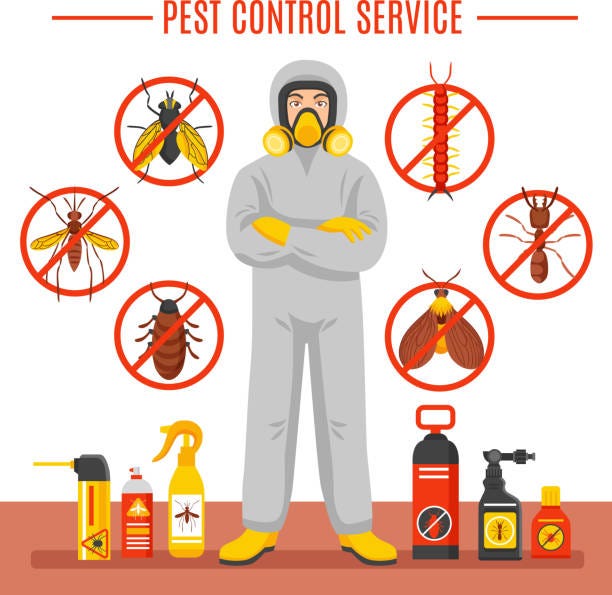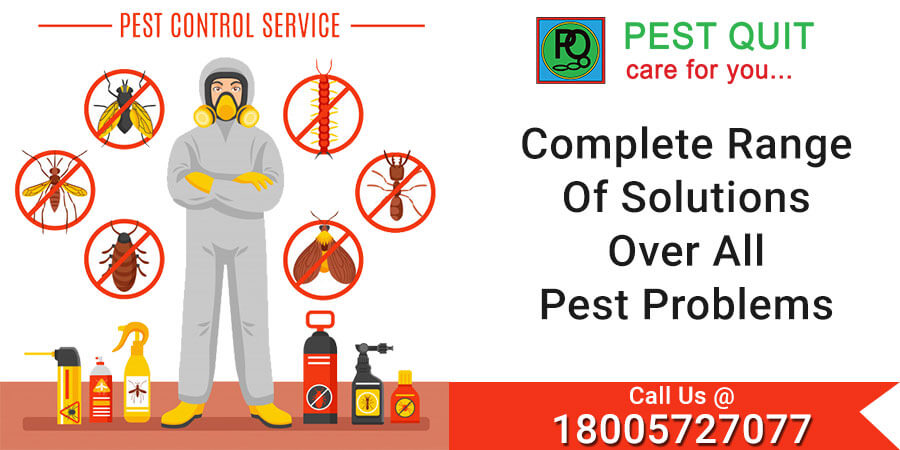Pest Control Auckland: Your Regional Experts for Effective Pest Monitoring
Pest Control Auckland: Your Regional Experts for Effective Pest Monitoring
Blog Article
Comprehending Different Kinds Of Pest Control Approaches and Their Efficiency
The administration of parasites is a critical element of preserving the health and honesty of numerous environments, from agricultural areas to residential homes. When considering pest control approaches, it is important to comprehend the diverse strategies available and their varying levels of effectiveness. From chemical treatments to biological services, each technique presents special advantages and restrictions. By checking out the subtleties of these pest control approaches, a comprehensive understanding of just how to attend to pest concerns can be developed.
Chemical Bug Control Techniques
Chemical parasite control techniques play a crucial function in properly taking care of and eliminating pest problems in different settings. These approaches involve using chemical materials to get rid of or discourage pests such as bugs, rats, and weeds. One of the essential advantages of chemical pest control is its capacity to provide fast and targeted services to pest problems. By utilizing details chemicals that are developed to target specific insects, this technique can assist stop damage to plants, structures, and human health.
However, it is necessary to think about the prospective risks and disadvantages connected with chemical bug control techniques. Overreliance on chemicals can bring about the development of pesticide resistance in parasites, making them tougher to manage in the lengthy run. In addition, using certain chemicals can have damaging effects on non-target organisms, the environment, and human wellness if not applied correctly.

Biological Bug Control Techniques
Using natural predators and virus to handle pest populaces successfully, biological pest control techniques use a sustainable and green approach to pest management. By promoting the task or introducing of organisms that normally prey on or contaminate bugs, such as ladybugs for aphid control or particular bacteria for caterpillar invasions, organic control can aid maintain insect populations at convenient degrees without the demand for synthetic chemicals. This technique is specifically beneficial for chemical-free farming practices, as it prevents making use of possibly harmful compounds while keeping plant health.

Physical Bug Control Approaches
While organic bug control methods focus on harnessing all-natural predators and pathogens, physical pest control techniques utilize physical and mechanical obstacles to take care of bug populaces. These techniques are often considered eco-friendly as they lessen the usage of chemicals. Physical bug control includes techniques such as capturing, utilizing barriers like nets or displays, and physically removing pests from the location.
Traps are frequently made use of in physical insect control to record and remove insects like rats and pests. Another physical method is the use of barriers such as fencings, webs, or displays to prevent pests from entering or infesting particular areas.
All-natural Parasite Control Approaches
Incorporating plant-based repellents and natural predators is a key approach in executing efficient natural pest control methods. By urging the visibility of useful bugs like ladybugs, lacewings, or predative termites, gardeners can naturally manage pest populations. These predators prey on usual yard pests such as termites, caterpillars, and aphids, assisting to preserve a balanced visite site ecological community without the demand for chemical interventions.

In addition, carrying out cultural methods such as plant rotation, friend planting, and keeping proper plant wellness can also enhance the performance of all-natural bug control methods. These techniques not only assist in preventing parasite problems however additionally promote biodiversity and total environment resilience. By incorporating these all-natural techniques, people can successfully take care of insects while lessening environmental influence.
Integrated Bug Monitoring (IPM) Method
Carrying Out an Integrated Pest Management (IPM) method is necessary for properly controlling insect populaces while lessening reliance on chemical pesticides. IPM is a extensive and lasting important source strategy that integrates numerous pest control methods to accomplish long-lasting services. This strategy concentrates on control, prevention, top article and monitoring to attend to bug concerns in an eco-friendly manner.
IPM integrates biological, cultural, physical, and mechanical methods with the restricted and calculated use pesticides when required. By emphasizing proactive steps such as environment alteration, organic control, and exemption, IPM aims to decrease pest populations and their influence on the ecosystem. Routine tracking is critical in IPM to evaluate pest levels properly and establish one of the most appropriate control approaches.
Among the essential advantages of IPM is its capacity to minimize the threats connected with excessive chemical use, such as environmental contamination and damage to non-target organisms. Additionally, IPM promotes a more holistic approach to pest administration by taking into consideration the general environment dynamics. On the whole, the IPM strategy supplies a sustainable and efficient remedy for pest control while promoting environmental obligation.
Final Thought
To conclude, comprehending the various kinds of pest control techniques and their performance is vital in successfully handling insect problems. Chemical, biological, physical, and all-natural bug control approaches each have their very own advantages and constraints. Integrated Insect Administration (IPM) strategy, which combines different techniques for lasting bug control, is increasingly being recognized as a eco friendly and holistic service. By utilizing a mix of these people, companies and approaches can successfully control insects while lessening injury to the atmosphere.
Chemical insect control techniques play a pivotal duty in successfully taking care of and eradicating pest infestations in numerous atmospheres.Using natural predators and microorganisms to handle parasite populaces effectively, biological bug control methods offer a eco-friendly and sustainable method to pest monitoring. By introducing or advertising the activity of microorganisms that naturally prey on or contaminate bugs, such as ladybugs for aphid control or specific germs for caterpillar invasions, biological control can help keep parasite populations at workable levels without the demand for artificial chemicals.While biological insect control approaches concentrate on using natural killers and microorganisms, physical insect control methods utilize physical and mechanical barriers to manage bug populaces. Integrated Bug Administration (IPM) method, which integrates numerous approaches for sustainable bug control, is significantly being recognized as a environmentally friendly and holistic option.
Report this page